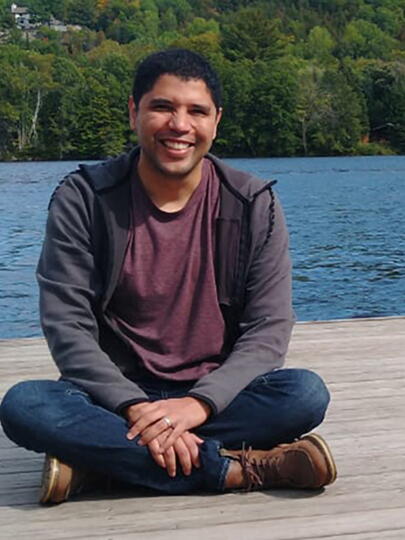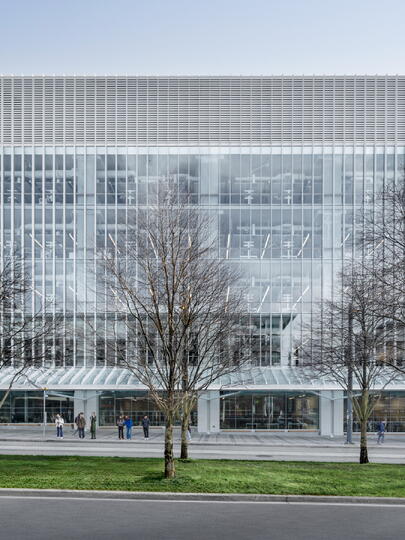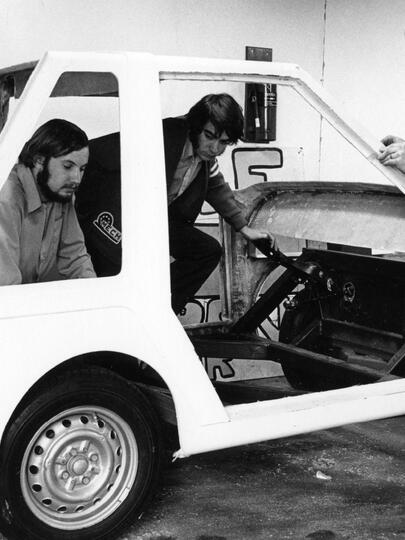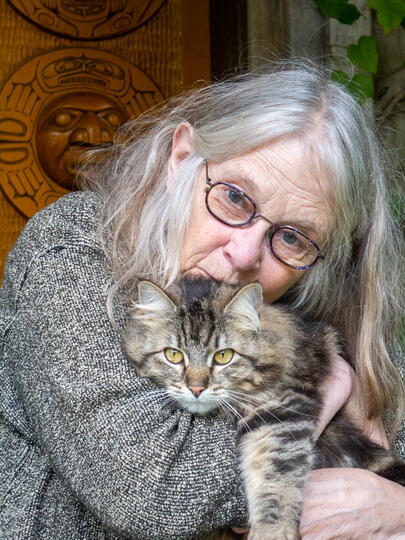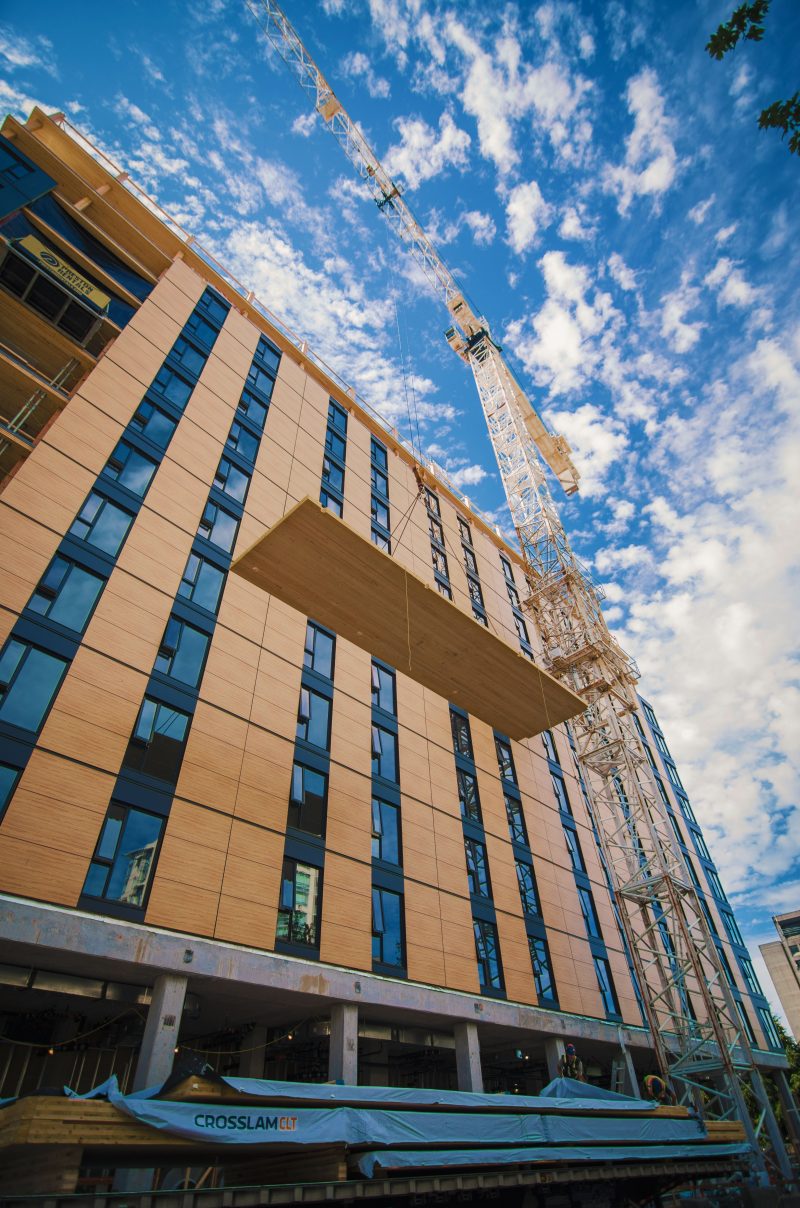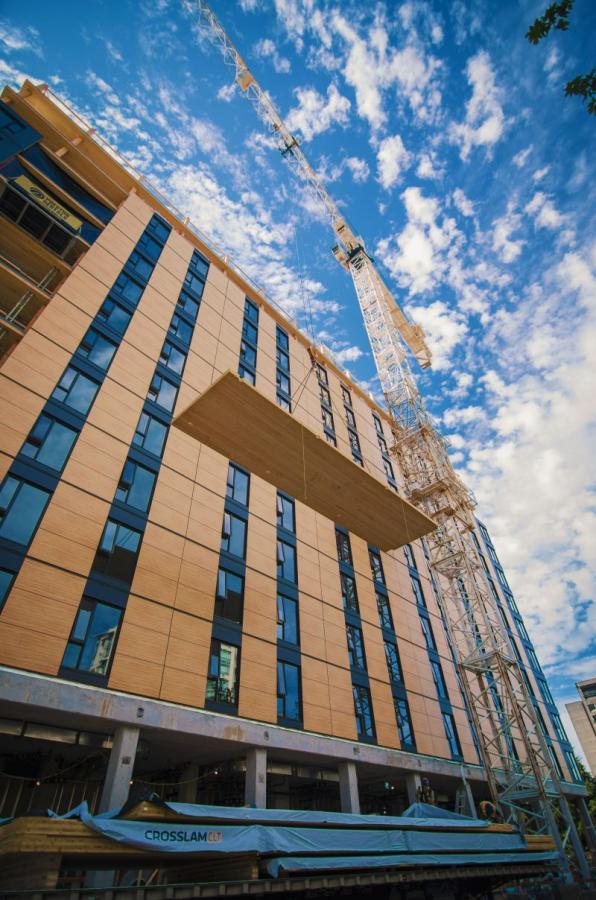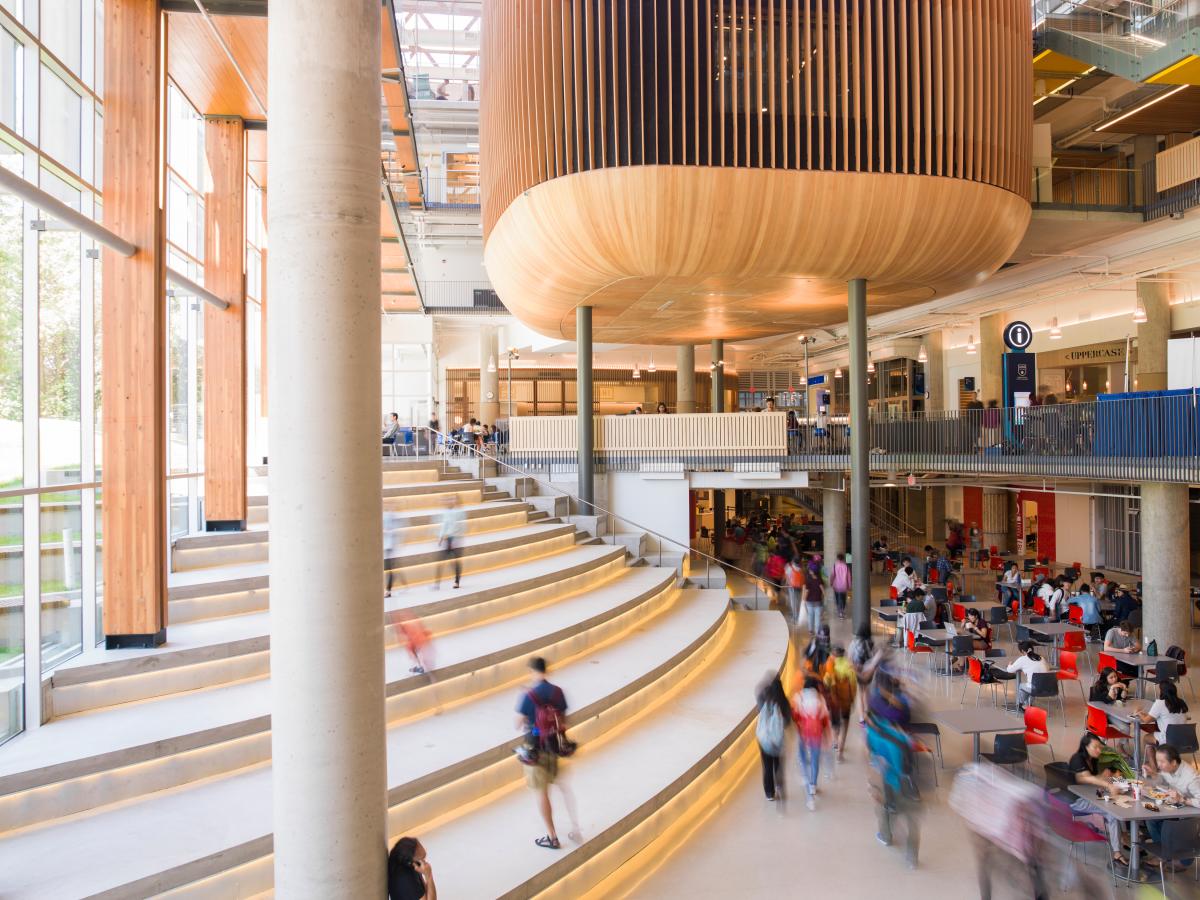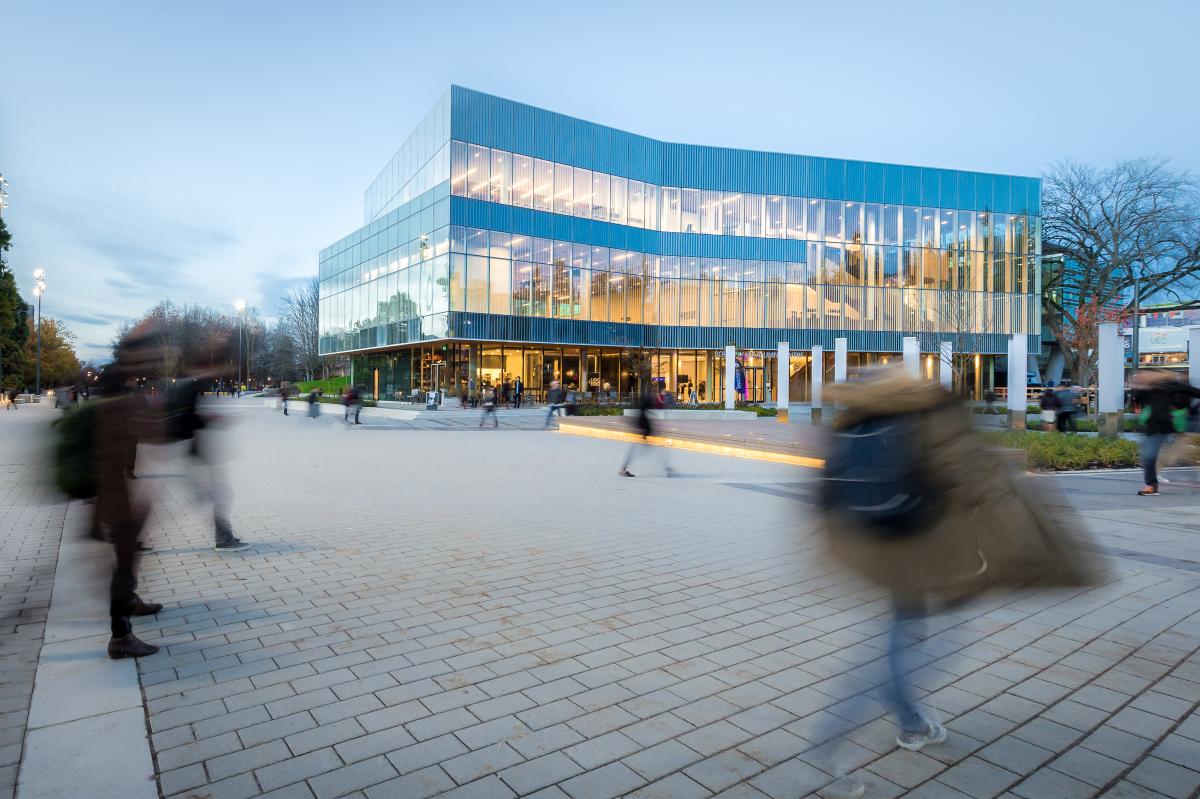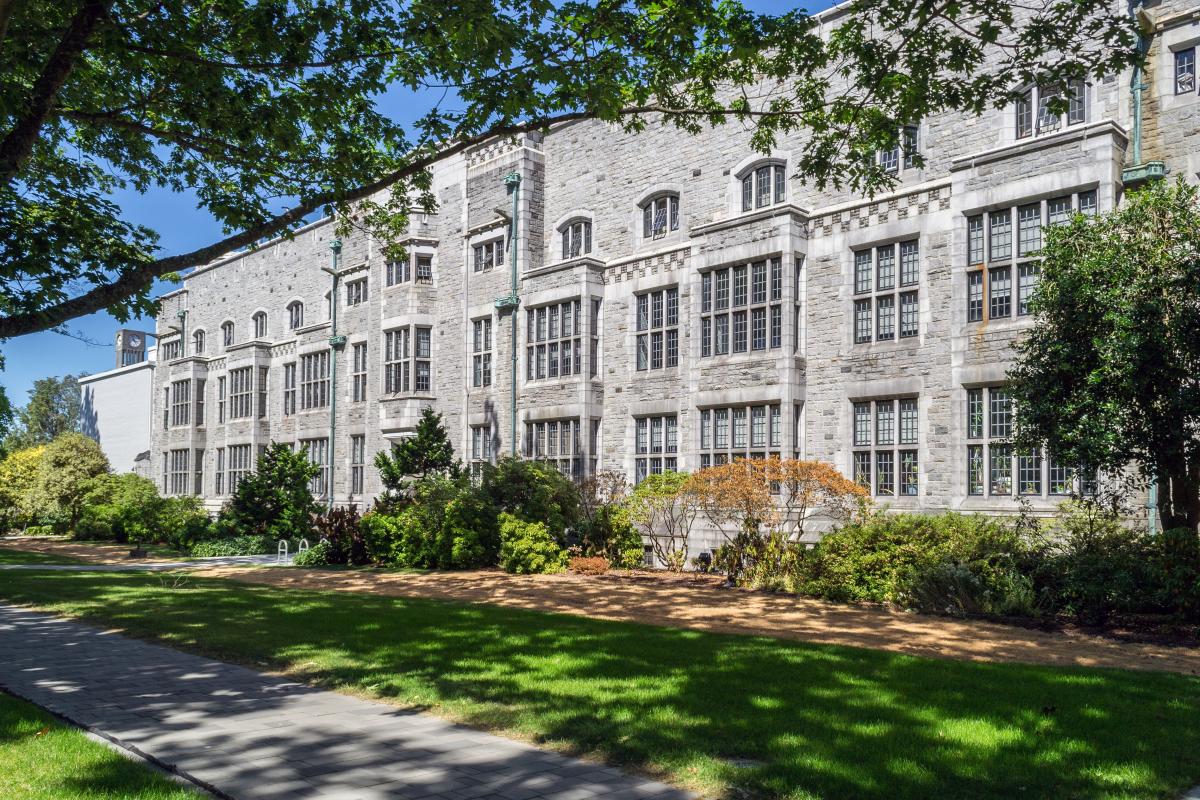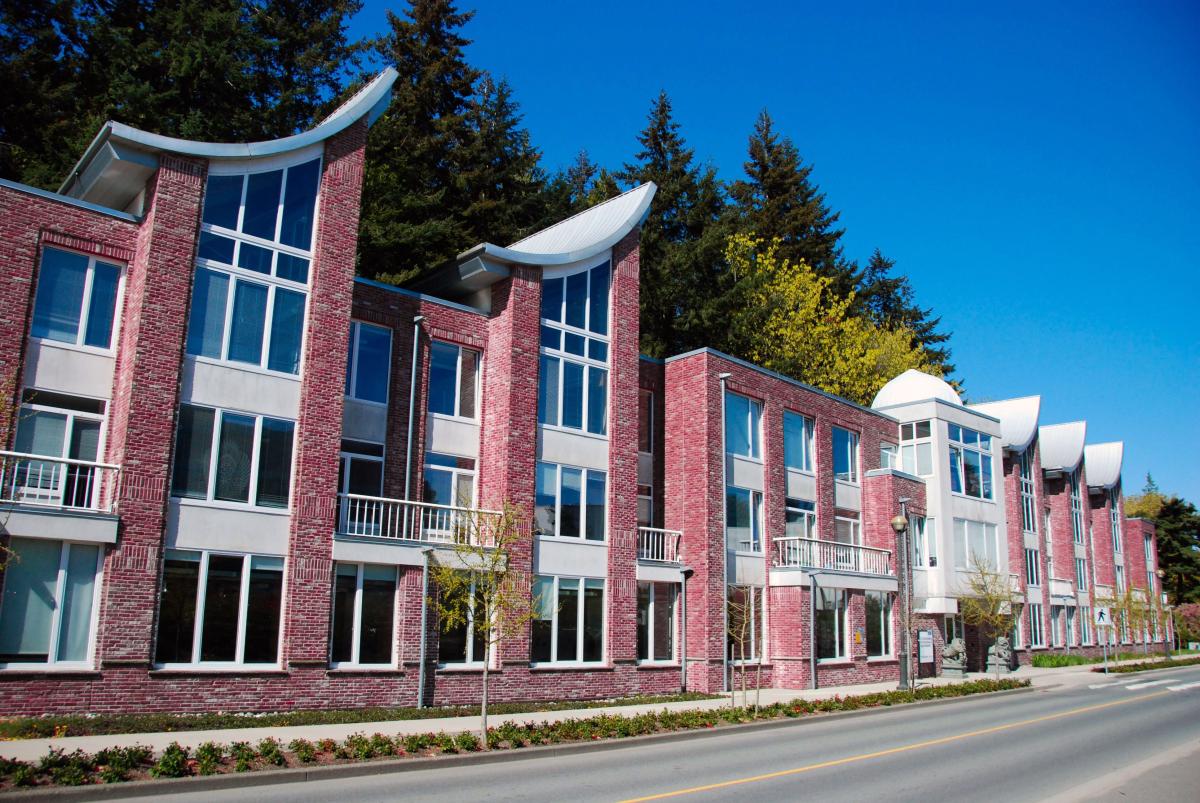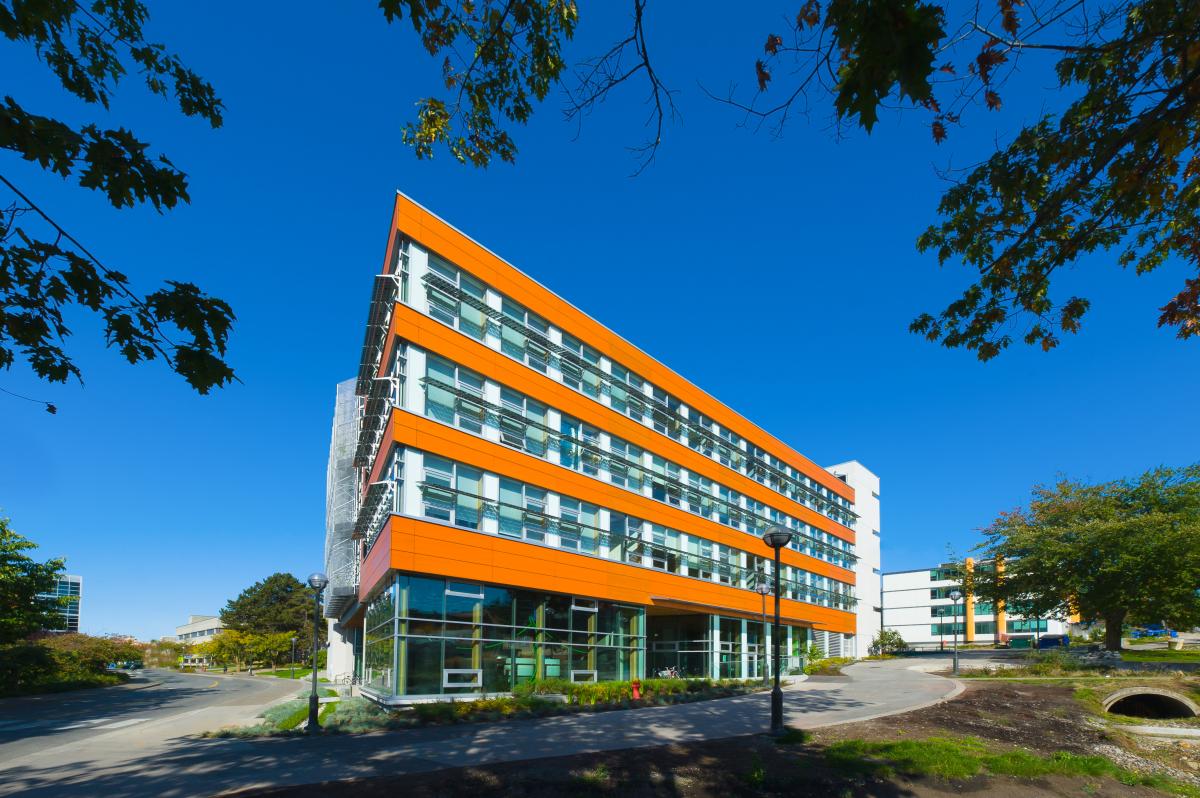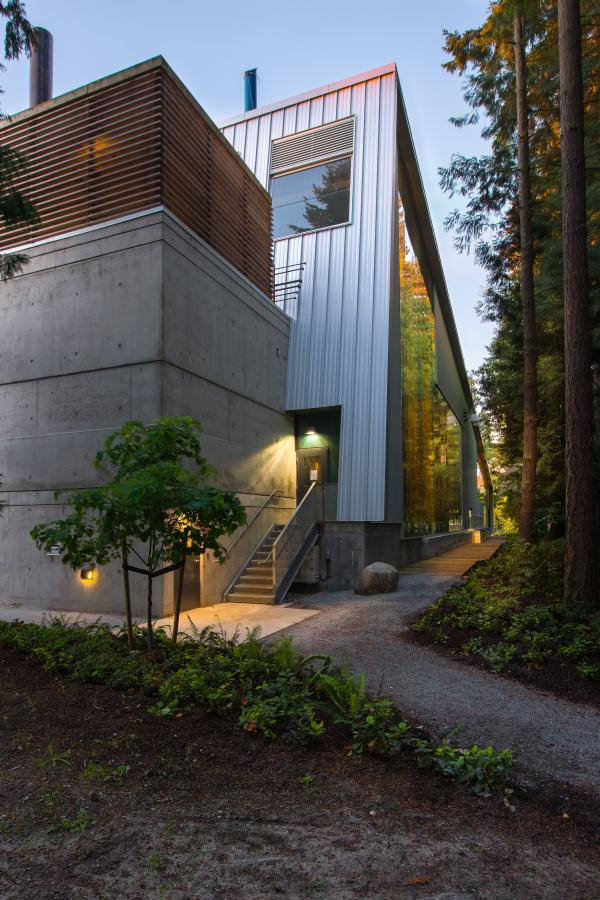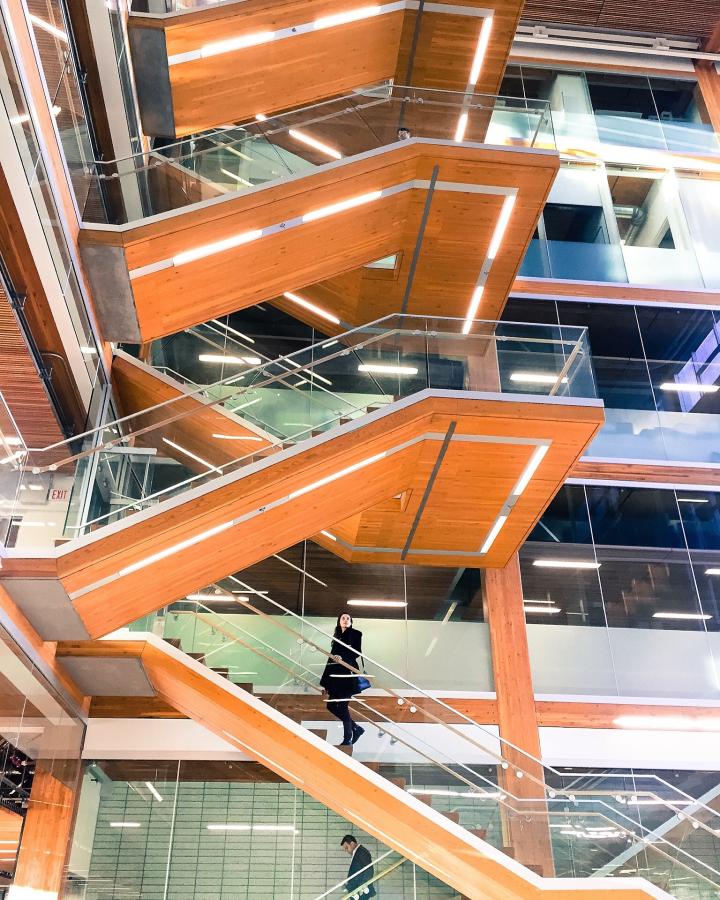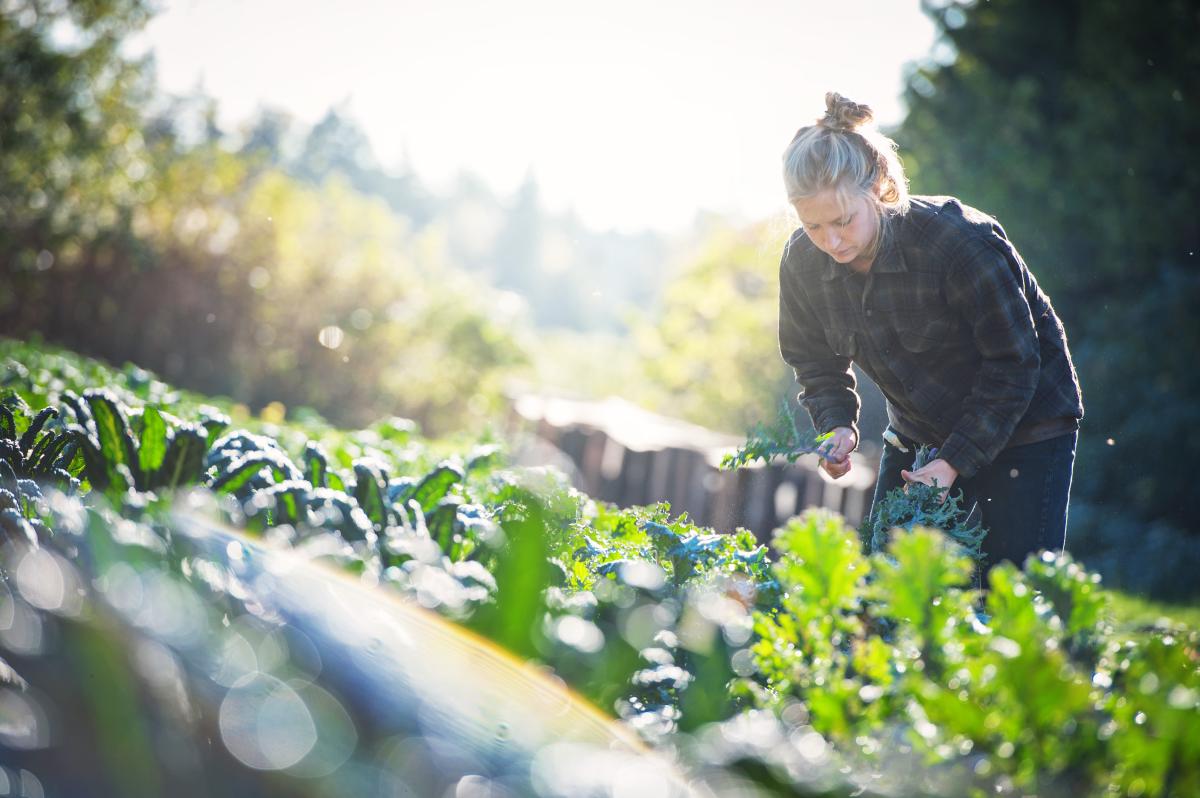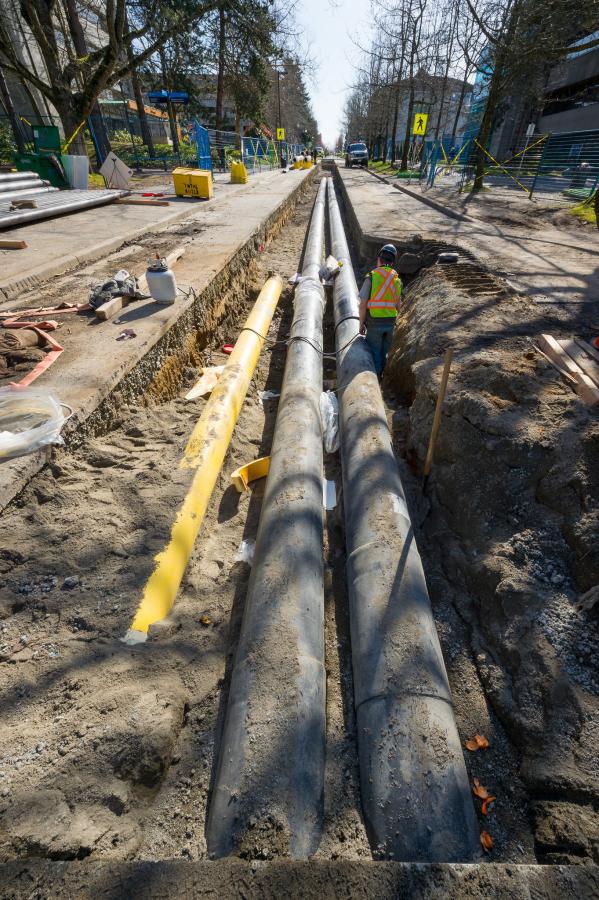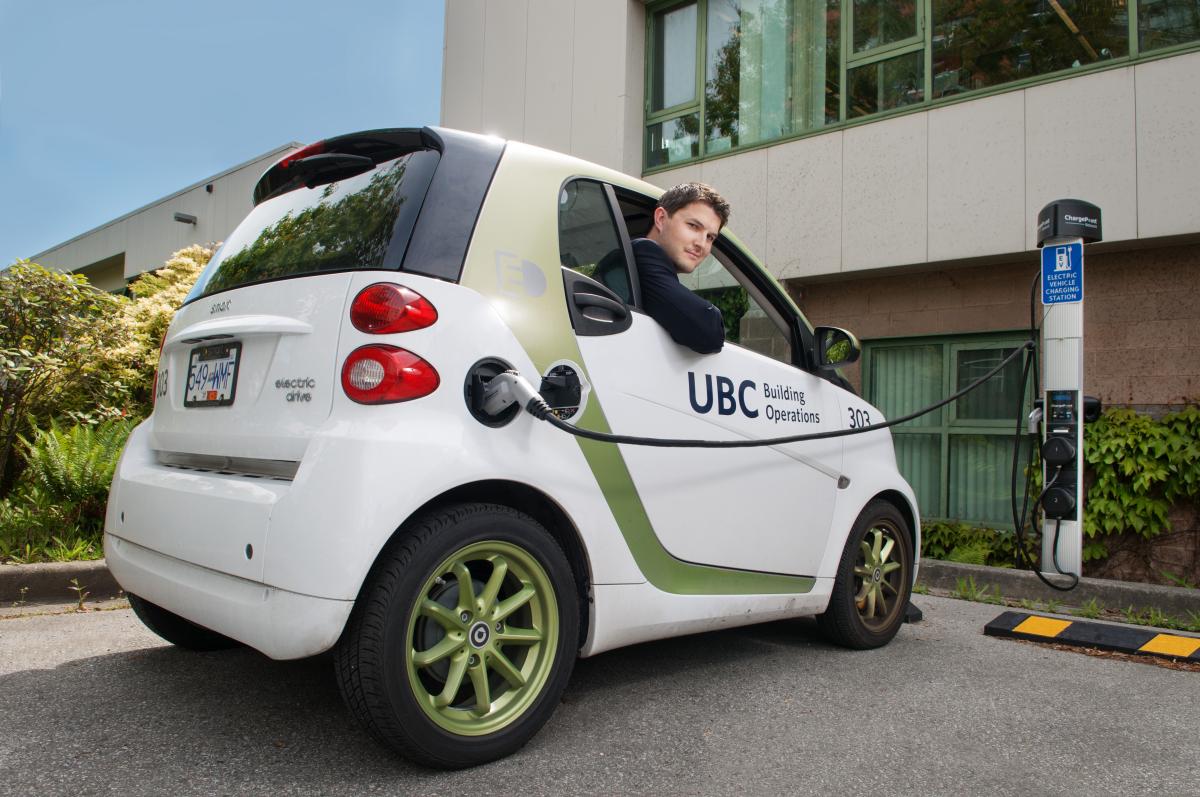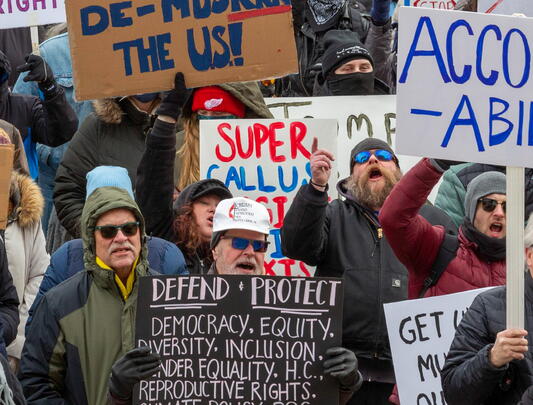Small City, Big Ideas
Sustainability is a core value for UBC – an aspiration grounded in the fact that its campuses are the size of small cities and represent a microcosm of the challenges facing cities around the world. The university’s commitment to research and innovation in the field of sustainability will support the emergence of the next generation of technologies, financial vehicles and policies that will ensure the future of our global cities is a positive one.
Dr. James Tansey is executive director of the UBC Sustainability Initiative and the Sauder Centre for Social Innovation and Impact Investing. Here he discusses what UBC – one of the most sustainable campuses in the world – is doing to be a model for sustainable urban transformation.
Q: Sustainability – how would you define it?
I would define sustainability in terms of our capacity as a species to innovate in response to the unintended consequences of social change and economic development. Since the beginning of the industrial revolution, sustainability has been about the challenge of improving human well-being through economic growth while also operating within the boundaries of natural systems. There has always been a tension here, and that also translates into debates about the social impacts of economic growth, issues related to equity, and the right to basic human security. To me, sustainability is really about the need to innovate and I am always optimistic that we can solve the problems we’ve created.
Q: You often reference the idea of future cities. What do you envision for the cities of the future and why focus on cities?
The city has provided the nexus for almost all the major innovations that have emerged in the last two centuries, and by 2050 some 70 per cent of the world’s population will reside in urban centres. While cities offer opportunities to increase the efficiency of resource use, they also create huge demands on energy, water and food systems.
Ultimately, we need to develop sustainable, intelligent, innovative and equitable cities that embrace innovation. I believe Vancouver is a globally leading example.
Q: What are some of the key challenges to overcome in terms of urban sustainability and how can universities play a role in overcoming them?
The core challenge is how we integrate built form with transportation, energy and resource systems in a way that contributes positively to our quality of life. UBC is a living laboratory for the kinds of urban systems we need to create in order to deliver on these goals.
Given its size and population, the Vancouver campus already functions like a city. Many of our projects already have a direct application to urban sustainability: we’ve built high-performance buildings, including the world’s tallest contemporary wood building; delivered award-winning public realm projects; adopted electric vehicle fleets; supported smart energy grid research; and incorporated a renewable energy system, the Bioenergy Research and Demonstration Facility, as part of our campus energy sources.
We’ve reduced our greenhouse gas emissions 33 per cent relative to 2007 levels – and that’s as our student population increased by 20 per cent and our campus footprint by 16 per cent over the same period.
By providing a microcosm of the challenges faced by cities, we can support an innovation agenda that will shape the cities of the future. Over the course of our recent evolution, as we solve one set of challenges, new ones emerge. So our capacity to innovate is not just an economic imperative, it’s essential for us to thrive as a species.
We also have a responsibility to ensure our students leave as responsible global citizens. To ensure their success, we provide on and off‑campus opportunities for students to develop applied skills and make a positive impact in the community.
Q: The university committed itself to a policy of sustainability in 1997. Looking back, what are you particularly proud of in terms of UBC’s efforts?
Looking back, our overall efforts are indeed remarkable.
UBC now offers more than 50 sustainability-related academic programs and more than 600 sustainability-oriented courses, and hosts more than 400 faculty working on sustainability-related research. Students can also participate in initiatives such as the Sustainability Scholars Program – which provides them with applied experiences and helps advance the sustainability goals of our partners, including the City of Vancouver and Metro Vancouver – or the SEEDS Sustainability Program, which teams them with faculty and staff to tackle operational sustainability challenges amounting to more than a hundred projects each year.
Operationally, we’ve had many firsts for Canada. In 1997, we were the first campus to develop a sustainable development policy, and the following year were the first to open a sustainability office and publish a campus-wide sustainability strategy. We’ve reduced our greenhouse gas emissions 33 per cent relative to 2007 levels – and that’s as our student population increased by 20 per cent and our campus footprint by 16 per cent over the same period.
These climate action achievements were made possible through our renewable energy Bioenergy Research and Demonstration Facility, the replacement of the Vancouver campus’ aging steam heating infrastructure with a more efficient hot water heating system, the opening of the new Campus Energy Centre, and continued focus on green buildings and engagement and behaviour-change programs. Now we are moving toward the 2020 emissions reduction target of 67 per cent, and beyond to reach the 2050 target of zero emissions.
What makes me proudest, however, is the passion and enthusiasm of our students, who continue to explore and innovate. Just recently, a PhD student (now an alumnus) developed an innovative way to use the university’s existing Wi-Fi network to determine the number of building occupants and adjust ventilation accordingly – saving energy without sacrificing air quality. His patent‑pending innovation is the basis of a start-up called Sensible Building Science and is being installed at campuses across BC. As far as we know, it’s the first of its kind in North America. And I expect we’ll see more examples like this in the future.
Sustainability highlights on the Vancouver campus








